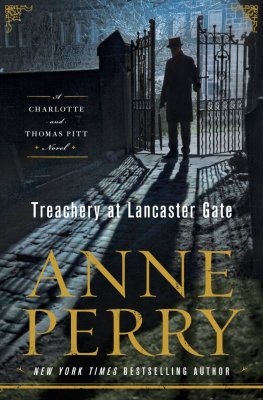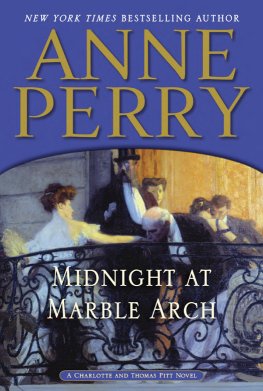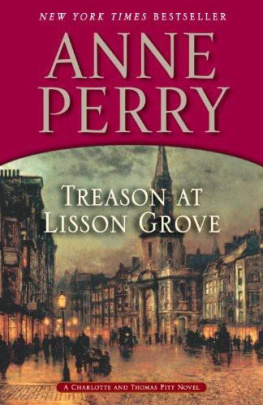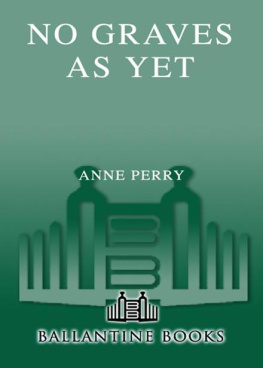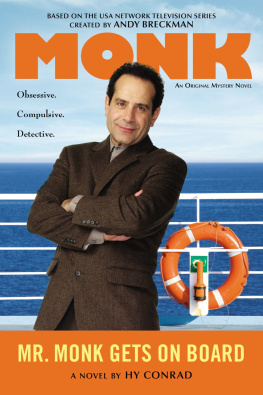
Book 15 in the William Monk series, 2006
Waterloo Bridge loomed in the distance as William Monk settled himself more comfortably in the bow of the police boat. There were four men, himself as senior officer, and three to man the four oars. Rowing randan, it was called. Monk sat rigid in his uniform coat. It was January and bitterly cold as he and his companions patrolled the Thames for accidents, missing craft, and stolen cargo. The wind ruffled the water and cut the skin like the edge of a knife, but he did not want anyone to see him shivering.
It was five weeks since he had accepted the position leading this section of the River Police. It was a debt of honor he already regretted profoundly, the more so with every freezing, sodden day as 1863 turned into 1864 and the winter settled ruthlessly over London and its teeming waterway.
The boat rocked in the wash of a string of barges going upriver on the incoming tide. Orme, at the stern, steadied the boat expertly. He was a man of average height, but deceptive suppleness and strength, and a kind of grace exhibited as he managed the oar. Perhaps he had learned in his years on the water how easy it was to capsize a boat with sudden movement.
They were pulling closer to the bridge. In the gray afternoon, before the lamps were lit, they could see the traffic crossing: dark shadows of hansoms and four-wheelers. They were still too far away to hear the clip of horses' hooves above the sound of the water. A man and woman stood on the footpath close to the railing, facing each other as if in conversation. Monk thought idly that whatever they were saying must matter to them intensely for it to hold their attention in such a bleak, exposed place. The wind tugged at the woman's skirts. At that height, where there was no shelter, she must have been even colder than Monk was.
Orme guided the boat a little further out into the stream. They were going downriver again, back towards the station at Wapping where they were headquartered. Six weeks ago Inspector Durban had been commander and Monk had been a private agent of enquiry. Monk still could not think of it without a tightening of the throat-a loneliness and a guilt he could not imagine would ever leave him. Each time he saw a group of River Police and one of them walked slowly with a smooth, ambling stride, a little rounded at the shoulder, he expected him to turn and he would see Durban 's face. Then memory came back, and he knew it could not be.
The bridge was only two hundred feet away now. The couple were still there against the balustrade. The man held her by the shoulders as if he would take her in his arms. Perhaps they were lovers. Of course, Monk could not hear their words-the wind tore them from the couple's mouths-but their faces were alive with a passion that was clearer with every moment as the boat drew towards them. Monk wondered what it was: a quarrel, a last farewell, even both?
The police oarsmen were having to pull hard against the incoming tide.
Monk looked up again just in time to see the man struggling with the woman, holding her fiercely as she clung to him. Her back was to the railing, bending too far. Instinctively he wanted to call out. A few inches more and she would fall!
Orme, too, was staring up at them now.
The man grasped at the woman and she pulled away. She seemed to lose her balance and he lunged after her. Clasped together, they teetered for a desperate moment on the edge, then she pitched backwards. He made a wild attempt to catch her. She flung out a hand and gripped him. But it was too late. They both plunged over the side and spun crazily, like a huge, broken-winged bird, until they hit the racing, filthy water and were carried on top of it, not even struggling, while it soaked into them, dragging them down.
Orme shouted, and the oarsmen dug their blades in deep. They threw their backs against the weight of the river, heaving, hurtling them forward.
Monk, his heart in his mouth, strained to keep the bodies in sight. They had only a hundred feet to go, and yet he knew already that it was too late. The impact of hitting the water would stun them and drive the air out of their lungs. When at last they did gasp inward, it would be the icy water laden with raw sewage, choking them, drowning them. Still, senselessly he leaned forward over the bow, shouting, "Faster, faster! There! No there!"
They drew level, turning a little sideways. The oarsmen kept the boat steady in the current and the changing balance as Orme heaved the body of the young woman over the gunwale. Awkwardly, as gently as he could, he laid her inside. Monk could see the other body, but it was too far away to reach, and if he stretched he could tip the boat.
"Port!" he instructed, although the oarsmen were already moving to do it. He reached over carefully to the half-submerged body of the young man, whose coat was drifting out in the water, his boots dragging his legs downwards. Awkwardly, straining his shoulders, Monk hauled him up over the gunwale and in, laying him on the bottom of the boat next to the young woman. He had seen many dead people before, but the sense of loss never diminished. From the victim's pale face, smeared with dirt from the river water and plastered with hair across the brow, he appeared about thirty. He had a mustache but was otherwise clean-shaven. His clothes were well cut and of excellent quality. The hat he had been wearing on the bridge was gone.
Orme was standing, balancing easily, looking down at Monk and the young man.
"Nothing we can do for either of 'em, sir," he said. "Drown quick going off the bridge like that. Pity," he added softly. "Looks no more'n twenty, she does. Nice face."
Monk sat back on the bench. "Anything to indicate who she was?" he asked.
Orme shook his head.
"If she 'ad one of 'em little bags ladies carry, it's gone, but there's a letter in 'er pocket addressed to Miss Mary 'Avilland o' Charles Street. It's postmarked already, like it's bin sent and received, so could be it's 'er."
Monk leaned forward and systematically went through the pockets of the dead man, keeping his balance with less ease than Orme as the boat began the journey downstream, back towards Wapping. There was no point in putting a man ashore to look for witnesses to the quarrel, if that was what it had been. They could not identify the traffic that had been on the bridge, and on the water they themselves had seen as much as anyone. Two people quarrelling-or kissing and parting-who lost their balance and fell. There was nothing anyone could add.
Actually, as far as Monk could remember, there had been no one passing at exactly that moment. It was the hour when the dusk is not drawn in sufficiently for the lamps to be lit, but the light wanes and the grayness of the air seems to delude the eye. Things are half seen; the imagination fills in the rest, sometimes inaccurately.
Monk turned to the man's pockets and found a leather wallet with a little money and a case carrying cards. He was apparently Toby Argyll, of Walnut Tree Walk, Lambeth. That was also south of the river, not far from the girl's address on Charles Street off the Westminster Bridge Road. Monk read the information aloud for Orme.
The boat was moving slowly, as only two men were rowing. Orme squatted on the boards near Argyll's body. On the shore the lamps were beginning to come on, yellow moons in the deepening haze. The wind had the breath of ice in it. It was time to trim their own riding lights, or they would be struck by barges-or the ferries going crosscurrent- carrying passengers from one bank to the other.
Monk lit the lantern and carefully moved back to where Orme had laid the woman. She lay on her back. Orme had folded her hands and smoothed the hair off her face. Her eyes were closed, her skin already gray-white, as if she had been dead longer than just the few minutes since they had seen her on the bridge.
Next page

